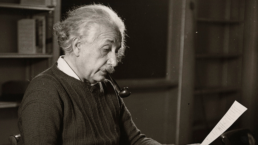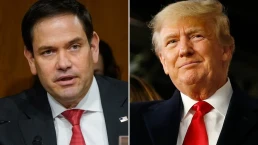The scientist’s efforts helped create the movement for arms control and disarmament.
by Lawrence S. Wittner, Foreign Policy In Focus
Although the popular new Netflix film, Einstein and the Bomb, purports to tell the story of the great physicist’s relationship to nuclear weapons, it ignores his vital role in rallying the world against nuclear catastrophe.
Aghast at the use of nuclear weapons in August 1945 to obliterate the cities of Hiroshima and Nagasaki, Einstein threw himself into efforts to prevent worldwide nuclear annihilation. In September, responding to a letter from Robert Hutchins, Chancellor of the University of Chicago, about nuclear weapons, Einstein contended that, “as long as nations demand unrestricted sovereignty, we shall undoubtedly be faced with still bigger wars, fought with bigger and technologically more advanced weapons.” Thus, “the most important task of intellectuals is to make this clear to the general public and to emphasize over and over again the need to establish a well-organized world government.” Four days later, he made the same point to an interviewer, insisting that “the only salvation for civilization and the human race lies in the creation of a world government, with security of nations founded upon law.”

Determined to prevent nuclear war, Einstein repeatedly hammered away at the need to replace international anarchy with a federation of nations operating under international law. In October 1945, together with other prominent Americans (among them Senator J. William Fulbright, Supreme Court Justice Owen Roberts, and novelist Thomas Mann), Einstein called for a “Federal Constitution of the World.” That November, he returned to this theme in an interview published in the Atlantic Monthly. “The release of atomic energy has not created a new problem,” he said. “It has merely made more urgent the necessity of solving an existing one…As long as there are sovereign nations possessing great power, war is inevitable.” And war, sooner or later, would become nuclear war.
Einstein promoted these ideas through a burgeoning atomic scientists’ movement in which he played a central role. To bring the full significance of the atomic bomb to the public, the newly-formed Federation of American Scientists put together an inexpensive paperback, One World or None, with individual essays by prominent Americans. In his contribution to the book, Einstein wrote that he was “convinced there is only one way out” and this necessitated creating “a supranational organization” to “make it impossible for any country to wage war.” This hard-hitting book, which first appeared in early 1946, sold more than 100,000 copies.
Recent Posts
All Democratic Presidential Candidates In 2028 Should Commit To Dismantling ICE
January 8, 2026
Take Action Now Since its inception, ICE has been designed to conflate issues of immigration with terrorist threats against the U.S.By Sam…
Trump Cuts Billions In Federal Childcare Funds For Democratic-Led States After Minnesota Fraud Scandal
January 8, 2026
Take Action Now Administration cites welfare fraud allegations as advocates and state leaders warn of political retaliation and sweeping harm to…
After The ICE Killing In Minneapolis, Will Truth Prevail?
January 8, 2026
Take Action Now Can Trump and Kristi Noem maintain their blatant lies in the face of multiple videos that show the victim was trying to drive away…
Venezuela And The Long Shadow Of The Monroe Doctrine
January 7, 2026
Take Action Now Critical historians like William Appleman Williams played a key role in highlighting the US’s imperial record in Latin America. Now…




